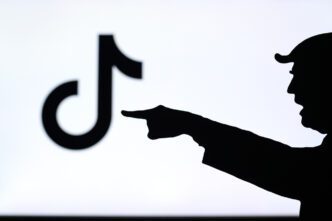Executive Summary
The Story So Far
Why This Matters
Who Thinks What?
Billionaire investor Frank McCourt, who previously sought to acquire TikTok, is now scrutinizing the legality of the White House-brokered agreement for a majority-American investor group to purchase the app’s U.S. assets. McCourt stated he believes the American public requires greater transparency regarding the deal and is investigating whether it complies with last year’s sale-or-ban law and adequately addresses national security concerns.
TikTok Acquisition Scrutiny
McCourt, alongside investors like Kevin O’Leary and Alexis Ohanian, was an early bidder for TikTok after a law was passed requiring its divestiture or a ban in the United States. His group aimed to acquire TikTok without its proprietary algorithm, intending to rebuild it using new technology developed by his nonprofit, Project Liberty, to enhance user data control.
The proposed deal involves a different investor group, expected to include Oracle, private equity firm Silver Lake, Dell CEO Michael Dell, and Lachlan Murdoch’s Fox Corp. This development is the latest in a years-long effort to separate the popular video app from its China-based parent company, ByteDance, amid concerns over potential risks to U.S. user data and national security.
President Trump signed an executive order last month, affirming the deal as a “qualified divestiture” under the ban-or-sale law, an essential step in advancing the sale. However, many aspects of the agreement remain undisclosed, particularly how the new ownership will license TikTok’s algorithm from ByteDance while still addressing the underlying national security issues. The new group is expected to receive the algorithm and retrain it on U.S. user data, with Oracle monitoring content delivery.
McCourt’s Post-TikTok Plans
Despite probing the current proposal, McCourt emphasized that he has not abandoned his original goal of empowering users with data control. He is now focused on developing technology to help individuals protect their online data, especially in the era of artificial intelligence.
McCourt’s Project Liberty is exploring the creation of a personalized AI agent that would manage where and how a user’s data is shared across the internet. This agent would operate based on user instructions, allowing individuals to define what information they are willing to share and for what purposes, and even to rescind permissions over time.
McCourt highlighted the increasing importance of such controls, noting that unlike inferences drawn from online behavior, users directly share personal details with AI chatbots. He suggested that users should own their data and share in the economic value generated when their data is utilized by platforms.
Key Takeaways
As the TikTok acquisition process continues, Frank McCourt’s dual focus on scrutinizing the deal’s legal compliance and pioneering new technologies for data sovereignty underscores ongoing debates about digital privacy and national security in the technology sector.








